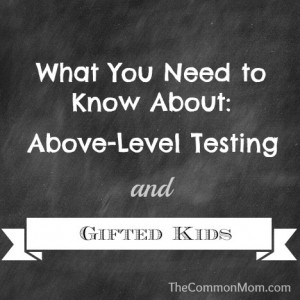I was Facebook chatting with a friend who’s just starting out on her journey of parenting a gifted kindergartener and we were talking about what would make our lives easier as we guide these unique little people. These are the items I came up with in no particular order.
Yep, I get it. Wishing for things to be easy as we raise gifted children is a total first-world problem. My kid has a full belly and goes to bed feeling safe. I’m more than thankful for this.
Nope, not all of these are very realistic. I know that. Some are tongue-in-cheek. Maybe a few of these things are already happening in some magical places but I’m pretty confident that they’re not the standard.
But some of these wishes sure seem like they could should be the norm.
Parenting a gifted child would be easier if…
- Neighborhood libraries were open 24-7 and the next book in whatever series they’re reading was always available.
- School districts provided professional development for ALL teachers on the identification of gifted students.
- All the enrichment programs were high-quality, reasonable priced, within a 20-minute drive of home, and the schedules never conflicted with any other activities. And all those enrichment locations should be next to a coffee shop with comfy chairs and strong Wi-Fi (I’m writing this at a coffee shop 60 minutes away from home while my daughter is at math class. There are no comfy chairs.)
- We could figure out how to download those *&{@! Minecraft mods without infecting our computers with some horrific virus. (I’ve had zero personal success with this.)
- Differentiation in the classroom happened and it actually worked. (Remember, these are wishes – anything can happen!)
- Every teacher, principal, and superintendent would be educated on what gifted students need in the classroom and then they’d provide it.
- Elementary classes would be on a block schedule to allow say, a 1st grader to go to 4th grade math and 3rd grade reading without ripping a hole in the space-time continuum.
- Schools would celebrate academic achievement the same way they celebrate athletic achievement (No, I’m not suggesting getting rid of traditional athletics!)
- And for those middle school students that need to go to the high school for classes, please provide transportation. Thank you.
- Gifted students would be grouped in a class so they would have true peers they could interact with. Maybe chat about things like a comparative analysis of Matt Smith vs. David Tennant vs. the new old Doctor (Whovians will understand).
- Scratch that – gifted students would have their own school. No more pull-out enrichment programs that while we are so thankful for are simply not enough to sustain these kids.
- There would be one universally acknowledged definition of what it means to be gifted and one universally accepted assessment to determine if in fact one meets that definition.
- Chess club would count as a sport.
- Computer programming would be taught as early as elementary school.
- Teachers would communicate via email rather than the archaic ‘backpack’ system. (Ok, not really a gifted thing but I hate digging through a backpack for the latest classroom news. I’m sure most schools already do this and I’m just in a black hole of poor communication).
- Librarians would limit the weight of the books a child checks out each week to prevent future chiropractic bills.
- The term “smarty-pants” would be banned. Please.
I reserve the right to add to this list as the whims hit me.
What say you – what’s on your wish list?










